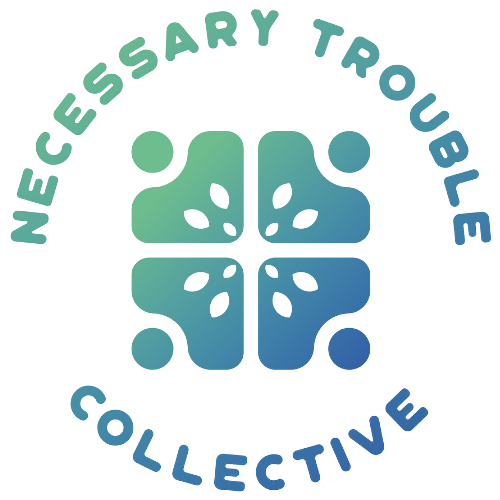DAY 14: Give up assuming that the intentions behind your actions matter more than the impact
We tend to judge ourselves by our intentions but others judge or experience us based on the impact our actions have on them. This creates a gap in the awareness or understanding of the doer regarding the experience of the receiver of any action. There are times when that gap is very small, within close relationships that do not navigate significant differences in power and privilege.
However, when there are differences in privilege and power between the doer and receiver are significant, i.e. differences in race, gender, sexual orientation etc., the gap in awareness between intention and impact grows. It becomes less likely that the intention behind my action will align with the experience of the other person or people.
A complicating factor is that racism self-perpetuates by hiding or minimizing its impacts from white people. This means white people rarely receive the feedback needed to understand how our actions impact others or, if we do receive feedback, we often dispute or deny the truth being shared with us because we have never experienced racism.
We can do things to try to increase the likelihood that our intentions align with our impacts by:
Listening to and believing the experiences of people we are in relationship with that hold different identities from us
Doing our own research on the lived experiences of others who hold different identities - there are plenty of opportunities on social media.
Learning how to remain curious and open to feedback about others experiences which can include mindfulness practices such as nonviolent communication
Building authentic relationships across differences
TIP: Commit to attending to the impact of your actions first when someone lets us know that you have had a negative impact on them. Do this even if they let you know in a way that is hard, like calling you out in a group situation. When this happens, notice and then resist the urge to explain your intentions. Instead, listen to what is being shared and acknowledge that person’s experience as best you can.
This is not the time to debate whether or not they should have been upset by your actions, it is enough to know that they have been. You can seek to understand later, by either doing your own research or asking for clarity once the person who received the impact has been settled. Notice if you are experiencing shame or embarrassment and seek support from someone other than the person harmed to offer you compassion and understanding for your intentions?
When you are aware of impact, always address the impact first. It is a commitment we can make that goes a long way to addressing the erasure that generates so much harm and disconnection.
RESOURCES:

